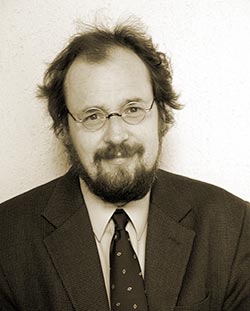|
ONDREJ KUKAL 
Symphony 1 Op 15; Chamber Symphony Op 16; Bassoon Concerto Op 14 “Fagottissimo”
Milan MuzikáÞ (bassoon), Radio Prague Symphony Orchestra, Czech Chamber Orchestra; Ondrej Kukal.
Vars VA 0142-2 (Czech Republic) 07E068 [68 mins]
If you have been wondering about Czech music after Martinu, you may find the music of Kukal (b Prague 1964) exactly to your liking. His violin studies led to him writing a violin concerto which he performed himself and recorded (Campion Records RRCD 1343)
The Chamber and First Symphonies share many moods. The same first note, a bass - C - opens both works. There is a feeling of irony in the chamber symphony as the basses, then cellos are gradually joined by the violas and the upper strings. This is dramatic music of the highest order. The string writing is of the greatest skill and the Czech Chamber Orchestra (under the composer's baton) display virtuosity and passionate flair.
The Concerto for Bassoon and Strings is very much in keeping with the other music on this disc. A dark opening has busy sounding lower strings with dialogue between violas and double-basses prior to the soloist entering with a sort of ‘fanfare' for bassoon. Then comes a long cadenza for the soloist (superbly played by the bassoonist Milan Muzikar) to bring this short first movement to a close. The second movement, a bitingly ironic scherzo full of the brilliant rhythmic we have come to expect from the Czechs, follows immediately and bustles along in a busy fashion, the mood veering between a sort of jollity at the same time as dark energy, which all dissipates into a slow movement of great beauty. Another cadenza leads all into the final Presto energico in which, to quote the sleeve-note writer, Milos Pokora, ‘The Concerto is then brought to its definitive ending, on a rampant spiral of an appassionato postlude which assigns to the entire concertante creation, a contemplative dimension.'
Kukal's Symphony No 1 “With Carillon” (1996/99) has two movements. The second is encased in two passages marked Gradazione and Epilog. From the very opening the listener's attention is grabbed: deep, dark, brooding notes in the lower strings joined by a timpani roll and sombre clarinet and flute with the sound of a cymbal and soft gong entering in a sort of procession. There is enormous tension here as the sound gradually fills and the opening instruments are joined by horns over a tapping kettledrum. Again, from the sleeve-note: ‘the work as a whole projects a highly suggestive imagery of birth, quest for light, and search for peace of mind.' For me, this is the most important, and the most powerfully written First Symphony since Shostakovich's; an absolute masterpiece by a new, emerging master.
The recording is top-notch; the disc is recommended without reservations.
Dennis Day
|



